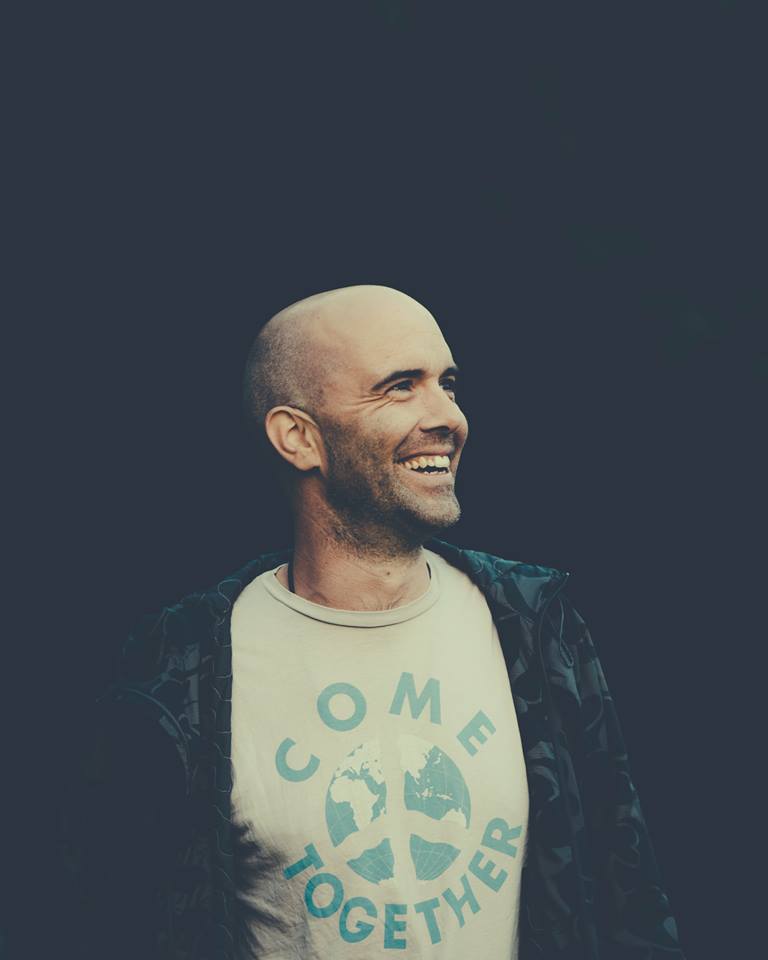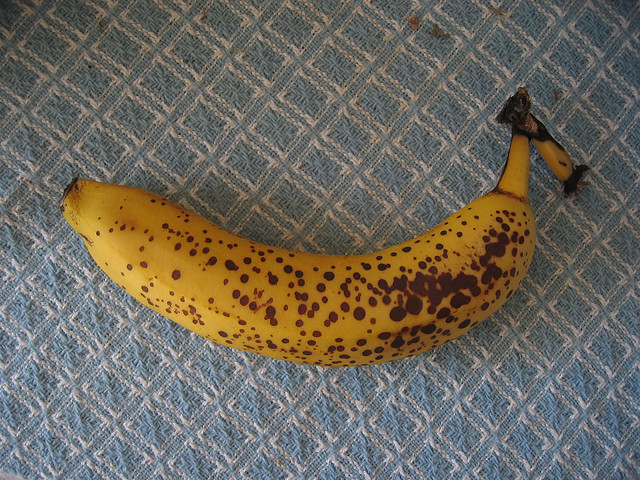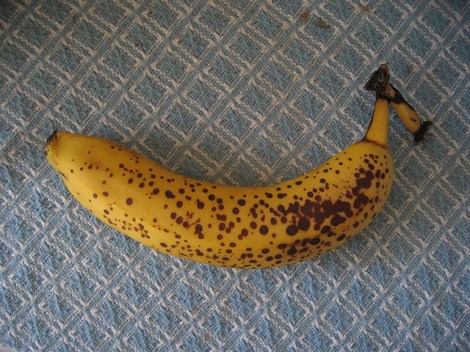Bananas are one of those strange foods that we treat like an obvious, ho-hum part of our diets, when in fact it’s pretty incredible that an exotic fruit that is grown almost nowhere in the United States appears every single day in every single grocery store (and even a lot of convenience stores) across the country. But bananas travel well, and so we eat a lot of them.
One of the ironies of banana production, though, is while banana fruit will survive the long journey from, say, Costa Rica to your grocery store, banana plants are always getting sick. To keep the bananas coming (and the massive market for bananas from collapsing entirely, as it inevitably will when Panama disease kills off all the Cavendish variety banana trees), banana growers spray their groves with lots and lots of pesticides.
NPR tells the story of a team of scientists who thought, “Hm, what’s that doing to the rest of the ecosystem?” Like, for instance, this part of Costa Rica where bananas are growing in an area where the local streams empty into protected rainforest?
So they looked at spectacled caimans, a type of crocodile that’s at the top of the food chain round those parts. (It’s also a threatened species.) And they found all sorts of pesticides concentrated in the crocodiles — pesticides that have been banned for years, like “DDT, dieldrin, and endosulfan.” One scientist told NPR:
“What was revealing to me was the fact that the caiman that were near the banana plantations had not only higher concentrations of pesticides, but also they were in a poorer state of health relative to the caiman in more pristine, remote areas,” says Ross.
None of this is exactly surprising when you think about it. The point of it is that most of us don’t. We just buy cheap, cheap bananas, and put them in everything. (Including in fruit salads, where they do not belong. No fruit salad has ever been improved by the addition of bananas.) Meanwhile, long after we’ve digested our banana-strawberry smoothie, and probably long after Cavendish bananas even exist anymore, the caimans of Costa Rica will be carrying around the pesticide residue that enable us to eat all those bananas in the first place.




